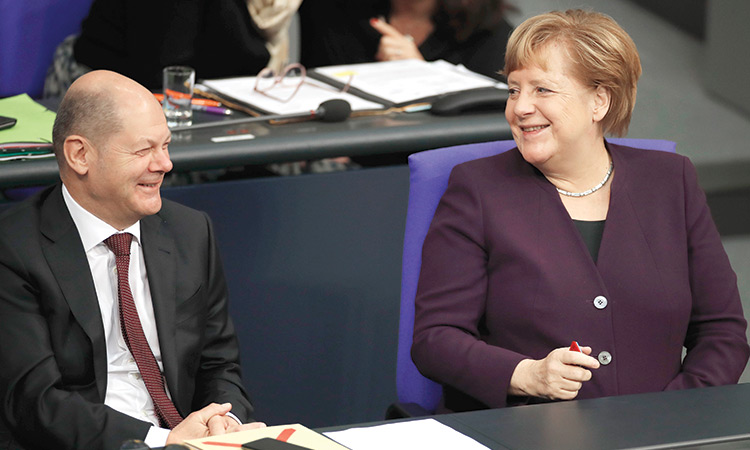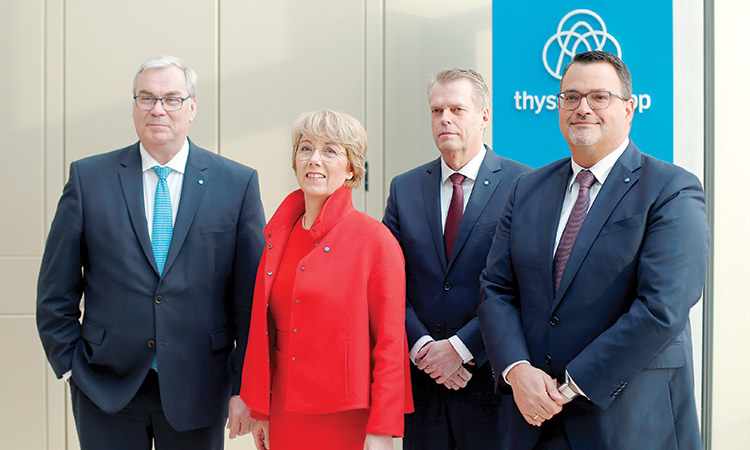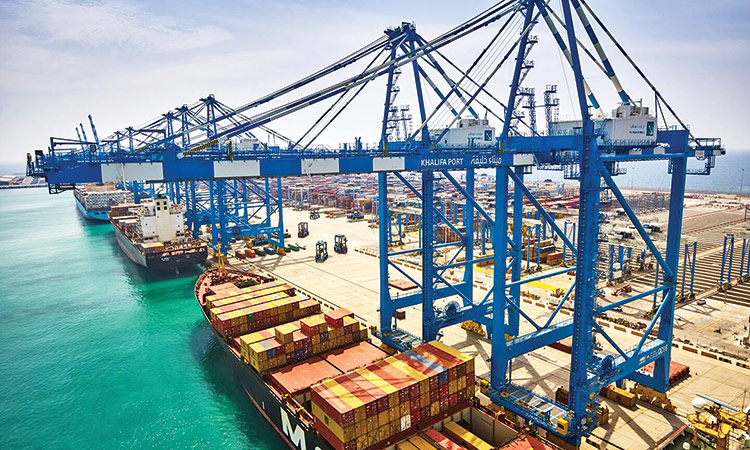Investor sentiment in Germany improves as recovery hopes up

A real estate project under construction in Berlin. Agence France-Presse
The ZEW survey of investors’ economic sentiment rose to 71.5 from 59.3 points the previous month, far exceeding a forecast for 58.0 in a Reuters poll of economists.
The German economy shrank by 10.1% in the second quarter, its steepest rate on record as consumer spending, company investment and exports collapsed at the peak of the COVID-19 pandemic, wiping out nearly 10 years of growth.
“Hopes for a speedy economic recovery have continued to grow,” said ZEW President Achim Wambach. The ZEW - Leibniz Centre for European Economic Research - in Mannheim is an economic research institute and a member of the Gottfried Wilhelm Leibniz Scientific Community.
Experts were much more downbeat about current conditions, however. The index tracking those dropped to -81.3 points from -80.9 the previous month. That compared with a Reuters consensus forecast of -68.8 points.
Wambach said assessments from individual sectors showed that experts expect a general recovery, especially in domestic sectors. “However, the still very poor earnings expectations for the banking sector and insurers regarding the coming six months give cause for concern,” he added.
The government hopes its more than 130 billion euro ($153.17 billion) stimulus package will help a return to growth. It expects the economy to shrink by 6.3% this year and expand 5.2% in 2021.
“Signs of a strong economic recovery in the summer are continuing,” said LBBW economist Uwe Burkert. “However, the danger of an expectation bubble, triggered by massive fiscal and monetary policy impulses, which mainly boost financial markets, is not off the table,” he added.
German government bond yields rose to a two-week high on Tuesday, a move tracked by other high-rated euro zone bonds, after a survey showed investors were more optimistic about the trajectory of the European economy than before.
Investor sentiment in Germany picked up more than expected in August, a survey by the ZEW Institute showed, reflecting hopes that Europe’s biggest economy is recovering after the coronavirus pandemic. Germany’s 10-year Bund, the benchmark bond in the bloc, saw its yield rise four basis points to a two-week high of -0.488%, a move mirrored by debt of other high-grade countries such as The Netherlands and France.,
“The air below the -0.50% level (on German 10-year Bunds) was getting thinner and so hopes for improved economic outlook is pushing yields higher,” said Commerzbank rates strategist Rainer Guntermann. “Stock markets hitting new highs are also contributing.”
US stock futures reached a record high on Tuesday, also on hopes of a stimulus-led recovery from the COVID-19 crisis.
But Guntermann warned that worries around COVID-19 infection numbers and geopolitical issues remain.
Earlier, southern European government bond yields dropped to new lows amid the promise of fiscal stimulus in the United States, unprecedented central bank support and a European Union recovery fund.
In early trading, Spain’s 10-year government bond yield dropped to 0.254%, its lowest since early March. The equivalent Portuguese bond yield fell to 0.278%, also its lowest since early March, before rising slightly.
In the absence of significant data releases or Europe-related headlines, the recently agreed European recovery fund has encouraged investors to keep buying this kind of debt, said Mizuho rates strategist Peter Chatwell.
“That was a watershed moment. Investors can now look at all European government bonds as being much more similar as it is more likely that stronger economies will be able to support the weaker ones in a crisis via the recovery fund,” he said.
The central bank liquidity flooding the system is also pushing spreads tighter. Chatwell pointed to the difference between three-month Euribor and the Euro Overnight Index Average, which has gone negative for the first time since early March.
Meanwhile, the euro rose on Tuesday after investor sentiment in Germany improved more than expected in August.
The ZEW economic survey of economic sentiment rose to 71.5 from 59.3 points the previous month, far exceeding a forecast for 58.0 in a Reuters poll of economists.
Euro/dollar rose 0.5% to $1.1809, but Jane Foley, senior currency analyst at Rabobank, said the move was exharcebated by thin August liquidity and she was “suspicious” over how much effect the survey may have on the common currency.
Reuters







